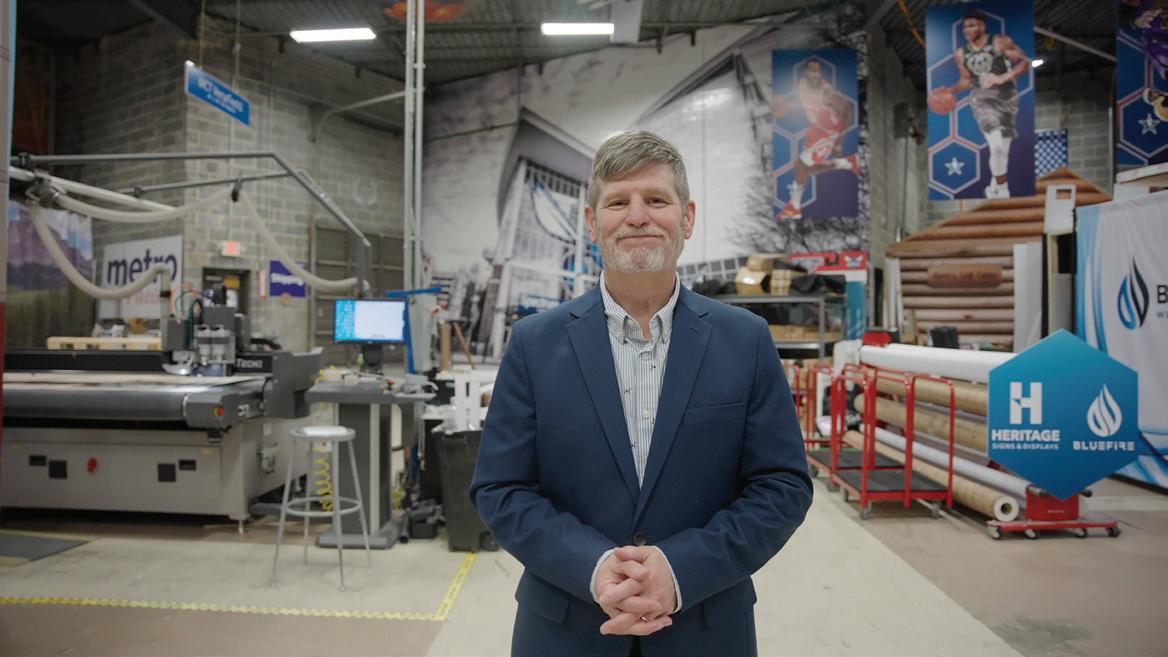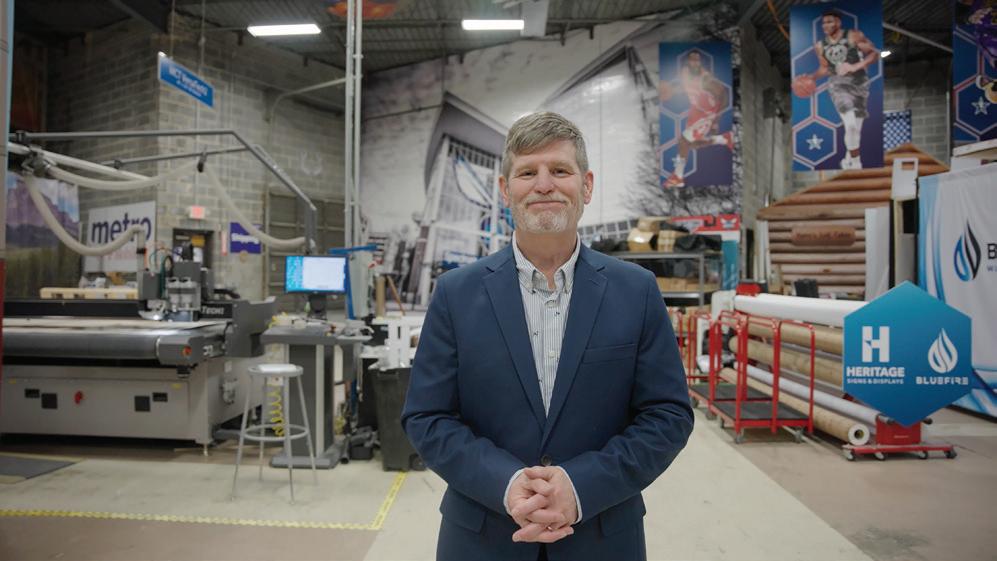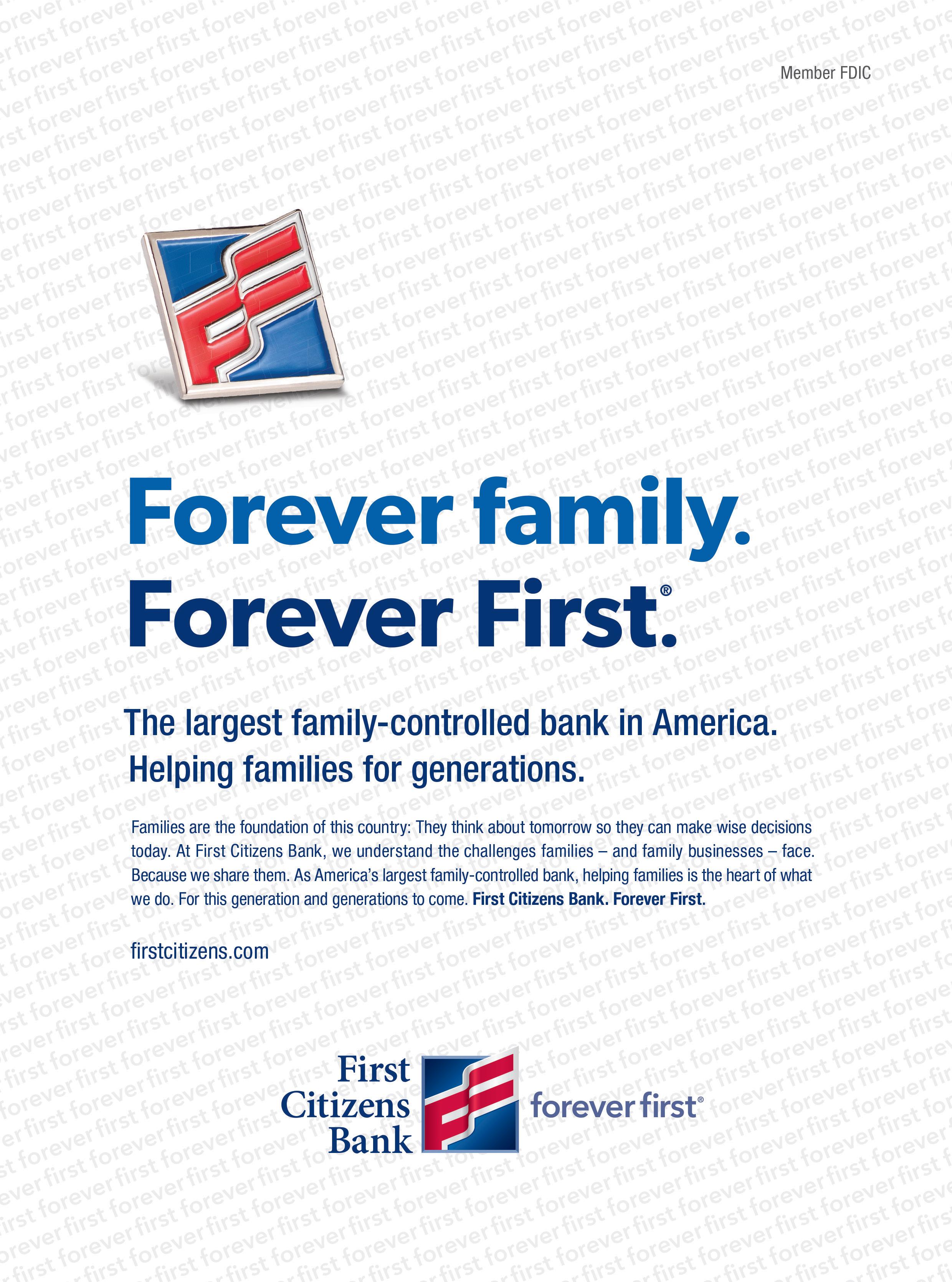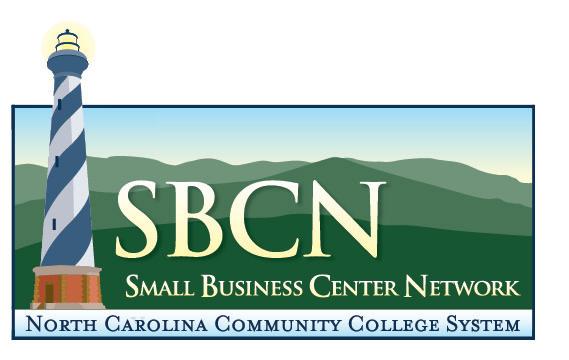







SPONSORED BY Powering Business

THANK YOU TO THE 2022 SPONSORS
PLATINUM SPONSORS:
Delta Dental of North Carolina | Duke Energy | First Citizens Bank
GOLD SPONSOR:
Economic Development Partnership of North Carolina
SILVER SPONSORS:
Small Business Technology and Development Center | N.C. Community College System
BRONZE SPONSOR: North State Bank
PLATINUM SPONSOR COMMENTS
Delta Dental of NC, protecting your employees’ eyes and smiles
Delta Dental of North Carolina has championed healthy smiles across the state for more than 50 years. As the nation’s leading provider of dental benefits, Delta Dental now offers essential vision and dental care options together, with access to the largest networks of dental AND independent vision providers and a variety of flexible plan options customized specifically for small business needs. Recognize overall savings, manage claims costs, and control premiums and out-of-pocket expenses for your employees today!
Contact your broker or visit deltadentalnc.com/employers

Duke Energy Business Savings Store
Energy efficiency can help increase profitability, so why not improve your business using energy-efficient products? The Duke Energy Business Savings Store offers ways to help you save energy and money with instant rebates on a variety of energy-efficient products for your business.
Visit duke-energy.com/SmallBizDeal
Powering Business
First Citizens Bank

For more than 120 years, families and businesses have trusted First Citizens to help them manage and grow their money. And in that time, we’ve grown too—from a single branch in Smithfield, North Carolina, to the largest family-controlled bank in the country. We’re big enough to help and small enough to care. Join us today and start planning for a future of growth and stability.
Visit firstcitizens.com
12022 NORTH CAROLINA SMALL BUSINESS HANDBOOK
SMALL BUSINESS & TECHNOLOGY DEVELOPMENT CENTER
5 W. Hargett St., Suite 600 Raleigh, NC 27601
STATE DIRECTOR
Byron Hicks
ASSOCIATE STATE DIRECTOR

Lisa Ruckdeschel
CONTENTS
4 2022 STATE OF SMALL BUSINESS

Opening letter from SBTDC State
Director Byron Hicks
6 CASE STUDY: DIGITAL MARKETING
Simple & Sentimental, Ayden
9
SMALL BUSINESS RESOURCES
Marketing & Customer Service
10 CASE STUDY: FINANCE
Heritage Printing, Signs & Displays, Charlotte
13 SMALL BUSINESS RESOURCE
Finance
14 CASE STUDY: CUSTOMER SERVICE

Sciencix, Cary
17 SMALL BUSINESS RESOURCES

Human Resources
N.C. Small Business Center Network
Small Business & Technology Development Center

State Agencies
Public & Private Nonprofits
PUBLISHER
Ben Kinney
WRITER Kathy Blake
SPECIAL PROJECTS EDITOR
Pete Anderson
CREATIVE DIRECTOR
Peggy Knaack
Old North State Magazines LLC
Small Business Handbook is produced by Old North State Magazines LLC, 1230 West Morehead Street, Suite 308, Charlotte, NC 28208. Telephone 704-523-6987. Fax 704-523-4211. Editorial content provided by the SBTDC. The SBTDC is funded in part through a cooperative agreement with the US Small Business Administration. All opinions, conclusions or recommendations expressed are those of the author(s) and do not necessarily re ect the views of the SBA. All rights reserved. The contents of this publication may not be reproduced by any means, in whole or in part, without prior written consent of Old North State Magazines LLC and the SBTDC.
2 2022 NORTH CAROLINA SMALL BUSINESS HANDBOOK

Dear Readers,
We are once again pleased to provide the North Carolina Small Business Handbook. This year’s edition features profiles of successful small businesses, highlights on topical areas of interest, and resources that can help small businesses navigate through business and economic changes.
BE MY OWN BOSS
North Carolina has seen a record number of new business starts in 2021 and so far in 2022 we are on pace to break last year’s record. According to the Office of the Secretary of State in 2021 there were over 170,000 new businesses started in the state and this year the number is on track to surpass 190,000. Many of these new businesses were LLCs and holding companies driven by the escalated real estate market for vacation and rental properties. Another large percentage of these businesses are “side-gigs” or solopreneurs looking to establish additional income in addition to their “day job”. A large number of people decided they could stay at home and set up their own businesses as freelancers and contract workers. Some started to solve the next great problem. With continued growth in the number of new business startups and our strong small business resource ecosystem, if you dare to dream, now is the time and North Carolina is the place.

PURPOSE VERSUS PAYCHECK
Now if you are an existing small business, where do you find new employees? How much do you have to pay new employees? What if you can’t find anyone with the
right experience? Do you have an onboarding or training program? These were not frequently asked questions two years ago. Hanging a “help wanted” sign in the window will not fill your job openings. So, one of the most pressing questions small business owners ask now is about building a team. Many small businesses do not focus on culture and mission. But those seeking employment are looking for more than a paycheck. They want a purpose, they want to feel valued and they want to believe in the mission of the business. In short, they want to make a difference. Small business owners remember that feeling when they started their businesses, and need to incorporate that passion into their business culture.
“WHERE IS THE BEEF?”
I hope some of you are old enough, as I am, to remember the Wendy’s Hamburger ad with the elderly women yelling “where’s the beef?” For small business owners the question is “where’s the money?” Capital for small businesses IS available. It is just not where we are used to looking. The last two years have had a major impact on funding for small businesses. Banks jumped into action with the support of the SBA to offer the Paycheck Protection Program (PPP), the Economic Injury Disaster Loans (EDIL), the Restaurant Revitalization Program (RRF) and the Shuttered Venue Operators Grant (SVOG). These programs did help many small businesses. However, the criteria for the funding was based on an expected pandemic duration of a few months, not two plus years. These funds were not a permanent fix.
Now with these funds expended, interest rates climbing, and too much debt on the books, many businesses are finding it difficult to obtain the capital they need to grow and reorganize their companies. So “where is the money?” In North Carolina there are many resources that can help. The recently announced States Small Business Credit Initiative (SSCBI) funded by the US Treasury and managed by the NC Rural Center will leverage $200 million into billions of dollars available for small businesses. The Community Development Financial Institutions (CDFIs) have grown and worked in tandem to assist small businesses. Credit Unions have entered the small business lending arena. Entrepreneurship resource partners offer funding. Many local municipalities and counties have set up small business grant and loan funds. The answer is ASK. Ask a resource partner, your banker, or your town council.
4 2022 NORTH CAROLINA SMALL BUSINESS HANDBOOK
LETTER FROM BYRON HICKS | State Director, Small Business and Technology Development Center
WE ARE HERE TO HELP
Most of all small businesses need trusted advisors, mentors and partners to thrive during these economic times. To help firms with both startup and ongoing business operations the state has two primary statewide resources available to help. They are:
The Small Business & Technology Development Center (SBTDC) is a statewide business advisory service of The University of North Carolina System. It has offices hosted by the 16 university campuses through which SBTDC professional staff provides in-depth business counseling to small to midsize companies in all 100 counties. This ranges from broad general business advice to specialized expertise in securing debt and equity capital, expanding into international markets, obtaining government contracts, and creating new strategies and organizational capacities for growth.
The NC Community College System’s Small Business Center Network (SBCN) which includes offices at each of the 58 Community College campuses across the state. They provide a broad, grass roots presence through which to provide educational programs and business advice to startups and micro businesses.
The expertise and support of these two leading state resources for small businesses are readily accessible. Services are confidential and most are free of charge. Further information about these and other resources in North Carolina are included in the Small Business Handbook.
Call on us if we can help you make your business better.
800-258-0862 | info@sbcdt.org | sbtdc.org

52022 NORTH CAROLINA SMALL BUSINESS HANDBOOK
PLUGGED IN

Launched in a college dorm room, Simple & Sentimental uses the power of the internet to energize continued growth and expand its international customer base.

6 2022 NORTH CAROLINA SMALL BUSINESS HANDBOOK CASE STUDY | DIGITAL MARKETING
Taylor Walden was an East Carolina University freshman in 2016, when she began dabbling in calligraphy. She used the art form to create bookmarks, offering them for free from a basket outside her seventh-floor room in Greene Residence Hall. “I thought, maybe people online would like [bookmarks], too, so I set up an Etsy shop,” she says. “And no one bought them. It was a saturated market.”
Walden segued to prints then stickers, which she created with white paper, a Sharpie and equipment stored in her dorm room’s closet — $300 worth of supplies. She had 500 sales on Etsy and was selling inventory outside ECU’s student store by the end of her freshman year. Her Etsy sales hit $9,000 in July 2017. “Word got out around campus and on Facebook groups,” she says. “I’m a real advocate for Facebook groups. There’s a group for everything. People would DM me, but Etsy is what pushed it forward.”
Walden has turned her hobby into Simple & Sentimental, a growing online business. Its expansive collection of customized gifts, personalized seasonal decorations, manufacturing and screenprinting services, along with a blog, recipes and brand ambassador program, are a click away. Her business journey from dorm room to warehouse-office building in Ayden has taught her how to make better financial decisions, such as buying sticker vinyl from a less-expensive supplier rather than Amazon and expanding her inventory to include bridesmaid gift boxes. And each step has been wired to digital marketing — website, Instagram, Facebook, Etsy, Amazon and search engine optimization.
Walden says social media is essential, but it’s not everything. “The most important thing for e-commerce is search engine optimization,” she says. “That’s what pays dividends for years. I find that my return is so much better on SEO than on social media. And it’s free, for the most part. You learn how to type in the right words, and instead of paying for ads on social media, you find the business and things like Etsy and Amazon come up. And I’m working on getting us some other platforms. It’s so much more than Facebook and Instagram. We rely on the internet to save money. It’s vital for e-commerce.”
Simple & Sentimental’s revenue quadrupled from 2017 to 2018. Walden has never borrowed money for her business, instead reinvesting its profits. “All the money was self-generated, and the initial sales of the bridesmaid boxes was what pushed me to make it a business,” she says. “I had the Facebook and Instagram, then after the business started, I had that and the website and still had the Etsy. We were the newest business in [ECU’s startup] incubator, and one thing I learned is that time matters. If we do a personalized gift, and you place your order at 11:59 p.m., it will ship the next day. Amazon has kind of created that culture, so it’s understandable that you can make time to do these things. That’s something we implemented early on.”

Walden gained more than her first sales while at ECU. She entered two back-to-back competitions, similar to the television show “Shark Tank,” including ECU’s Pirate Entrepreneurship Challenge, and won both. Within 24 hours, she’d earned $18,000. She changed the business name to Simple & Sentimental from TDHDesign. In April 2018, she used the funds to lease a 500-square-foot office in Greenville and hire three employees. That May, she expanded to 1,500 square feet, and in November, the volume of Christmas requests necessitated another expansion, to 2,600 square feet.

The most important thing for e-commerce is search engine optimization.”
—Taylor Walden
72022 NORTH CAROLINA SMALL BUSINESS HANDBOOK
As the business grew to ve full-time and three seasonal employees in 2019, Walden graduated — earning a business degree in three and a half years a er starting in the interior design program — and married fellow Pirate Nick. e newlyweds bought a home, too.



Walden compensated for reduced sales as the COVID-19 pandemic raged in 2020 by pivoting to face shields, making them with a laser engraver. She created birthday gi boxes emblazoned with “Happy Quarantined Birthday;” they became a best-seller. By Mother’s Day, she had 20 people working full-time, lling more than 500 orders each day. She used the pro ts to buy more printers. In March 2021, she and Nick bought their current building, which has conference space, a production room, sta lounge, executive o ce, and warehouse and storage space. e company’s workforce uctuates from eight to 12 most months, swelling to about 25 during the holiday season.
When Walden rst met Nick, he introduced her to a Christian college ministry, and she accepted Jesus. At her baptism, she remembers her pastor saying she could become a “respected leader of many.” She thought if she and Nick married, she could supplement their income with her Etsy money and be a stay-athome mom, selling stickers. But more was waiting.
Walden does business coaching. She o ers tips on creating weekly meal plans. She posts recipes. e couple also are foster parents. Her website states: “Simple & Sentimental exists to help people show love and appreciation through meaningful, innovative, and convenient gi s that honor God.”

Simple & Sentimental’s customer base has expanded to Canada, the United Kingdom, China and several Asian countries. Most domestic shipments are sent to Texas, California and New York because of their large populations. Walden is leaning away
from Etsy and toward Amazon, focusing on manufacturing and ful llment for other businesses in the same vein. “We produce the order, and ship the order and keep our equipment running yearround. Like at Christmas, we’re slammed,” she says.

Wherever customers live, Walden’s focus remains on connecting with them. “Know them inside and out,” she says. “Have a target market. e days of just posting things are shot. When it comes to social media, have real people and, I think, every business should have a video of some shape or form. Make your account and just start trying. Don’t wait to see if everyone else does it. Just do it.”

8 2022 NORTH CAROLINA SMALL BUSINESS HANDBOOK
Simple & Sentimental hello@simplesentimental.com 252-320-9458 simplesentimental.com
MARKETING
CHANGES BY SMALL BUSINESSES IN CONTENT MARKETING STRATEGIES POST COVID
70% revised their targeting and messaging strategies
64% of marketers updated their editorial calendars
53% of the surveyed marketers changed their promotion and content distribution strategy
40% of content marketers have allotted more resources toward creating content for social media and online communities
31% of marketers have re-examined their customers’ journey
20% adjusted their Key Performance Indicators (KPIs)

14% of marketers updated their content marketing metrics, including setting up new analytics and dashboards
SOCIAL MEDIA MATTERS
An analysis conducted by Visa says that 1 out of 4 online purchases is now made via social media interaction. Marketers expect a 66% increase in social media content creation.
MARKETING TIPS
Develop a post-pandemic marketing message
Communicate regularly with customers

Identify key customers and consider a “niche focus”

Strengthen digital communications and online presence
Focus on social media
Measure the success of each promotional campaign or activity
Make SEO improvements — improve rankings, traffic, click-throughs
Use technology to expand services — e-commerce, video, payment apps, etc.
RESOURCE: DIGITAL MARKETING GUIDE
The SBTDC’s Digital Marketing Guide is designed to help businesses get started with digital marketing. Topics include branding and messaging, websites, email marketing, social media and crafting a digital marketing plan. It also includes worksheets and other tools to help businesses through the process.
sbtdc.org/pdf/digitalmarketingguide.pdf



INCREASES CUSTOMER
team with
efficiently
92022 NORTH CAROLINA SMALL BUSINESS HANDBOOK
CUSTOMER SERVICE BENEFITS OF GREAT CUSTOMER SERVICE REDUCES CUSTOMER CHURN. According to Oracle, 89% of customers switched to a competitor brand after one negative customer experience.
LIFETIME VALUE (LTV). Highly engaged customers buy 90% more frequently, spend 60% more per transaction, and have 3 times the annual value compared to other customers. DRIVES REVENUE GROWTH. Businesses that focus on improving their customer experience see an average 80% increase in revenue. IMPROVES BRAND REPUTATION & WORD OF MOUTH. Significantly, 89% of people read online business reviews before they make a purchase, and 56% of customers would recommend a brand with excellent customer service to family and friends. BEST WAYS TO PROVIDE A GREAT CUSTOMER SERVICE EXPERIENCE IN 2022 1 Be responsive 2 Launch an omnichannel customer service strategy 3 Train staff to understand your products and services 4 Collect customer feedback 5 Invest in self-service tools 6 Reward customer loyalty 7 Personalize the customer experience 8 Equip your
tools and software to help them work more
9 Be transparent with customers 10 Use AI to automate tasks SMALL BUSINESS RESOURCES | Marketing & Customer Service
Source: Whatfix
BRINGING IT TOGETHER
Growing Heritage Printing, Signs & Displays from the family garage to three locations required finding the right people and making the right financial moves.



10 2022 NORTH CAROLINA SMALL BUSINESS HANDBOOK CASE STUDY | FINANCE
One of Joe Gass’ biggest responsibilities as president and CEO is creating a culture that supports the core values of his company, Heritage Printing, Signs & Displays. Its description reads: A veteran owned sign company of Charlotte, NC that seeks to honor God by serving others. “What we’re doing [as a company] is taking our talents and blessing other people,” he says.

of faith and have 14,000 square-feet, and it’s to where it is now. It built up.”
Among Heritage’s investments are printing presses, large format printers, laser cutters and fabrication machines. “It’s one of those things where you can say you’re always falling forward,” Gass says. “You can allocate your overall numbers at 40% is the cost of your labor, 30% is your materials you’re needing, like paper and vinyl substrates, then about 10% is your overhead. You add that up, and there’s not too much left for profit. So, you have to be pretty efficient. You want to be good at not making mistakes. And you’re always wanting to manage your resources, your team, to make sure.”
Gass’ parents started Gass Printing Service in the garage of their Leonardtown, Maryland, home 45 years ago. At age 13, he was a cameraman, hand-feeding film. He and his brother Steve purchased it in 1988 and branched out in 2005, when Steve remained in Maryland, where the company now has a location in Waldorf, along with one in adjacent Washington, D.C., and Gass ventured to Charlotte. “Our business had been in a Ben Franklin [five-anddime store], and we were probably doing $800,000 a year. So, we wrote a five-year business plan, changed the name to Heritage and accomplished the five years in 14 months.”
Heritage’s 18-person Charlotte office creates custom signs; wall, window and storefront graphics; banners; canvas prints; and business illustrations. It also builds trade show displays and prints brochures, manuals, direct mail and self-published books. Gass says all he and his brother had was a good reputation when they started in 1988. Since then, it has been constant bootstrapping, reinvesting, and finding and encouraging the right employees. “Everything is done for the client,” he says. “We don’t buy it somewhere else and mark it up.”
Working remotely with the company’s seven-member team in Maryland, Gass shared his first Charlotte location with other businesses. “My office was empty — no desk or phone — because I was always out in the community networking,” he says. He opened a small production plant off Harris Boulevard near Northlake Mall and hired two employees in 2009. Three-and-a-half years later, it moved to a 5,500-square-foot space at its current address. “And I was wondering, what are we going to do with all this space?” he says. “And in 2017 the space next door became available, and I talked to the landlord, and he said just take it all. So, we took a step
Heritage has used loans, some earmarked for veterans — Gass served in the Navy with SEAL Team 2 aboard the USS Hermitage and was stationed in the Mediterranean Sea — to buy equipment. “It’s always a challenge when you’re needing new equipment,” he says. “And you think about it when you’re paying this loan off over the next five or six years, that you’re getting some benefit from what you’re making. In many cases, the loans were equivalent to the value of the product. We’ve always had great credit.”
But equipment is only part of what makes a company successful. Finding the right employees is vital, too. “Are the people we hire going to be a multiplying factor, an addition, or are they going to be a subtraction?” Gass asks. “I’ve run into some people
What we’re doing is taking our talents and blessing other people.”
—Joe Gass
112022 NORTH CAROLINA SMALL BUSINESS HANDBOOK
you’re not going to change people. I’m not God, and I’m not going to do that.”
It’s important to create a culture that cultivates employees. “I’ve seen people grow and be transformed by what we do, and it’s not something you can force,” Gass says. “It’s something you can encourage. And I’ve seen people with potential and watched them grow. at’s the coach in me.”


Gass’ coaching experience began with his sons’ youth sports teams. He set out to accomplish two things. He wanted to help develop players’ talent on the eld, allowing them to realize their individual goals in the process. And he wanted to teach them to play as a team, contributing to a group e ort.
Gass believes the best person for the job may not always be the person who does the job best. “ ere are many talented people out there that may or may not t,” he says. “It’s a collaborative culture, and it’s trying to get those talented people who buy into the team concept. We have to have an interview to determine if they’re an asset or a liability. Will they be a prima donna or somebody who totally gets it?”
When Gass le the Navy, he spent Saturdays attending Nazarene Bible College. “[It was] in pursuit of a better understanding of myself and better understanding of God and His roadmap, the Bible,” he says. “It has been the best teacher for me. I’ve read other things, but that’s the main one. I was never in pursuit of that [diploma]. I just wanted to be teachable and learn something from others. It was an experience that could shape me for the next place.”
Gass’ journey has taken him to plenty of places, including working with a host of local clients, decorating the Washington, D.C., Hilton for a U.S. Olympic team celebration and completing a $350,000 project for the NBA All-Star Game. It also includes Marketplace Ministries, a nationwide nondenominational

I came to Charlotte from D.C., I just unplugged and looked at what was important and said, ‘If it isn’t business, I’ll nd another solution,’” he says. “I said, ‘Lord, here I am. Use me.’ And I found that I can honor God by serving others, and it’s been an amazing experience. Our company is very invested in supporting and walking alongside ministries all over the world.”
No matter where Gass’ work takes him, the destination is always a job well done. “I’m thankful we have a safe place for our employees to come to work and take the talents God has blessed them with and let them have that collaborative teamwork,” he says. “It’s empowering and inspiring to members of my team. I’ve been doing this for 34 years, and I feel like a young guy having a great time. It’s so much fun to be able to work with a client and take their space and transform it, and when the installers nish you see the client’s smile and it’s like we hit a home run here.” ■
Interstate St., Charlotte, NC 28208
12 2022 NORTH CAROLINA SMALL BUSINESS HANDBOOK
Heritage Printing, Signs & Displays 2739
704-551-0700 heritageprintingcharlotte.com
WHAT A LENDER LOOKS FOR (5 C’S)
CAPITAL. How much of your own money do you have invested in the business?
COLLATERAL. What is the fair market value of the security that you are offering to guarantee repayment of the loan?
CHARACTER. What is your track record — personal and professional — in managing finances and paying credit obligations?
CONDITIONS. What are the economic, demographic and regulatory trends that impact your business?
CAPACITY TO REPAY. Will your cash flow provide you with enough money to cover repayment of the loan?
TIPS FOR COMPARING SMALL BUSINESS LOANS
Where possible, prequalify.
Determine how you want to receive your funds. If you want to receive your funds up front, choose a traditional working capital or term loan. However, if you want to use funds only as you need them, consider a business line of credit.
Consider the repayment terms and flexibility.

Look out for additional fees. Lender may require borrowers to pay origination fees, late payment fees, prepayment penalties or any other common loan costs — factor these into your decision-making process.
Evaluate the lender’s customer support options. Research the lender’s customer service resources and read reviews to make sure it’s a good fit.
FINANCIAL MANAGEMENT CHECKLIST
CASH MANAGEMENT
Prepare regular cash flow forecasts
Focus on receivables collection
Prioritize who to pay first
Ask vendors for longer payment terms or partial payment


Talk to lenders about renegotiating existing loan terms Sell unproductive assets
COSTS & PRICING
Review personnel requirements

Reduce unnecessary expenses that don’t contribute to revenue generation
Review pricing and value — don’t cut prices in panic mode
Consider renting unused space to other businesses
INVENTORY CONTROL
Review inventory levels regularly Get rid of slow moving or obsolete inventory
Negotiate deals with suppliers when possible
132022 NORTH CAROLINA SMALL BUSINESS HANDBOOK
SMALL BUSINESS RESOURCES | Finance
Source: Forbes
PERSONAL APPROACH
From promptly answering phones to solving issues — Sciencix befriends its customers, ensuring they both succeed.

14 2022 NORTH CAROLINA SMALL BUSINESS HANDBOOK CASE STUDY | CUSTOMER SERVICE
Call laboratory parts provider Sciencix, and you’ll never wait on hold, listening to an automated recording that attempts to reassure you that your call is important. Instead, you’ll speak with a person in short order. “When that call comes in, it’s important,” says Lisa Bamford, Sciencix’s director of global marketing and business development. “If a part is $20 or $10,000, each caller is considered royalty. You don’t have to go through nine or 10 prompts to get someone. Nothing against those companies, but that will never be us. We invite customers to tell us what they need. If it’s not on our website, give us the specifics, and we can probably make it for you.”

Sciencix was founded in 1985 as CTS. Its high-quality maintenance and repair parts are comparable with original equipment from manufacturers. It has a 28,000-square-foot test lab at its Minnesota headquarters and an office in Cary, where it serves pharmaceutical and medical companies in and near Research Triangle Park. Its worldwide network stretches around the world. Its annual sales are more than $15 million. And it takes customer service seriously.
Sciencix’s list of high-pressure liquid chromatography consumables, which are used to manufacture pharmaceutical and biological products, includes tubing, vials and caps, filters, fittings and tools. Each is comparable to 10 name brands, including Hitachi and Waters. Customers order parts at all hours. “What’s interesting is we serve customers in more than 100 countries, and we take orders from all over the world, and we have customer relations employees that speak more than one language,” Bamford says. “So, even if it takes more time or more effort, it’s OK. We’ll take that time to be more personal.”
Bamford says there is a philosophy. “Part of our onboarding is across the board,” she says. “Some is specific to the role that person is coming into. But on Day One, we tell you about the company and the culture. While we don’t give them scripts to speak, their job is to make friends, first and foremost. How do you talk to your friends? How do you want your friends to talk to you? And we will place a new employee in a position where they’re shadowing and learning through osmosis, so they understand the experience we’re trying to create. When you call us, you’re not going to talk to someone who’s been outsourced.”
Extra effort creates lasting relationships. “When you get to know your customers, they open up to you about their careers and families, and you get to do life with them,” Bamford says. “And that makes our job more meaningful. When you’re invited into a
So, even if it takes more time or more effort, it’s OK. We’ll take that time to be more personal.”
—Lisa Bamford
152022 NORTH CAROLINA SMALL BUSINESS HANDBOOK
customer’s daily life, it’s more than just them placing an order. And you can’t achieve that if you aren’t practicing good customer service. It’s at the tip of the pyramid of what we do.”
Bamford says concern for customer success is at the heart of what Sciencix does. “And especially in customer service, if someone says their part hasn’t arrived or if it’s been damaged, we seek to get to the truth of whatever the issue is,” she says. “If a customer says a part is not performing right, we rst ask to assist them and see what’s going on, and we may nd out that they’ve tried to install it wrong. We never make assumptions. We want to nd out the truth about it.”
Sciencix’s president, Raj Bhandari, came to the United States from Nepal when he was 19 years old, searching for a better education. “He never thought he’d be president of a company, and this has been a dream beyond expectations,” Bamford says.

Sciencix’s Minnesota roots run deep, but Bamford says Bhandari wanted to grow the business. So, he traveled the country, visiting cities and searching for a place to expand. “RTP is where he wanted to set up camp,” she says. “It’s a very powerful hub in this industry.
ere’s no shortage of opportunities. e question was should we move the entire business? at was explored. But the president said there were so many employees with families in Minnesota, and he didn’t want them to have to move. e goal is to grow this [Cary] location. We have plenty of talent to pull from.”
e RTP location was established in 2019. It carries on Sciencix’s commitment to customer service, including making employees accessible to customers and personalizing every interaction. “When we answer the phone, it will be like ‘Hi, I’m Lisa. ank you for calling,’” Bamford says. “We want to establish that relationship early and make it personal. We work very hard to maintain that in a day and time when if people reach out to a
knows everyone, and our customers can talk to a human being on the other end of the line.”
During the onset of the pandemic, while most companies were transitioning into safe mode, Sciencix decided to take a risk. “We created a strategic operating method where we kept very high levels of stock, and that’s against what people teach,” Bamford says. “ ey say, ‘Clear the shelves; clear the shelves,’” but our industry is very critical and time-sensitive. [Customers] need it yesterday. We knew it was a risk, but it paid o . Customers called to place that order, and we could o er same-day shipping, so when the supply chain became a struggle, it didn’t faze us. We were prepared to operate without any disruption. e customer truly is the heartbeat of this business. It’s a busy world. I get it. But isn’t it nice when someone can respond so quickly?” ■

Sciencix
110 Brady Court, Cary, NC 27511 952-895-8292 sciencix.com

16 2022 NORTH CAROLINA SMALL BUSINESS HANDBOOK
HOW MANAGERS CAN

REMOTE EMPLOYEES

TIPS TO NAVIGATING THE LABOR SHORTAGE


172022 NORTH CAROLINA SMALL BUSINESS HANDBOOK
SUPPORT
Establish structured and regular (daily, weekly) check-ins Provide several different communication technology options Establish rules of engagement Provide clear goals and a path for career development Provide opportunities for remote social interaction Offer encouragement and emotional support tructured BENEFITS THAT MATTER MOST IN 2022 1 Physical health programs 2 Mental health programs 3 Employee engagement efforts 4 Childcare assistance 5 Flexible scheduling 6 The option to continue working remotely 7 Pet insurance 8 Flexible paid time off (PTO) 9 Financial wellness programs 10 Personalized benefits options Source: Workest Source: Harvard Business Review
Consider unconventional workers, such as retirees, student interns, independent contractors, or those with disabilities or in recovery Get creative about outreach — job fairs, family and friends, social media Consider how you sell the job — showcase company culture, perks (flexible schedule, onsite childcare), and current staff Focus on employee retention by listening and responding to your team Consider limiting hours or simplifying product offerings Outsource tasks such as payroll, marketing and bookkeeping SMALL BUSINESS RESOURCES | Human Resources
The N.C. Small Business Center Network, operated through the N.C. Community College System, is the largest statesupported small business assistance program, serving more than 70,000 North Carolinians each year. The 61 centers located at community colleges throughout the state are aligned with the state’s eight Prosperity Zones. Potential or current business owners can take advantage of high-quality, readily accessible assistance that includes resource and referral information for a variety of business needs; free confidential one-on-one business counseling services; and high-impact seminars and classes available.

Anne Shaw, State Director
N.C. Community Colleges 910-545-3679 shawa@nccommunitycolleges.edu

Mark Hagenbuch, Deputy Director
Guilford Technical Community College Nussbaum Center for Entrepreneurship 336-334-4822 x62003 mthagenbuch@gtcc.edu
NCSBC.NET




The Small Business and Technology Development Center is a business and technology extension program of the UNC System operated in partnership with the U.S. Small Business Administration. Since 1984, the SBTDC’s experienced counselors have helped more than 140,000 small and midsized business owners make better decisions, become more competitive and improve the economy of North Carolina. National studies show that SBTDC client companies increase revenue and create jobs at significantly greater rates than the average North Carolina business.
WEST REGION
Jill Sparks, Regional Director Asheville-Buncombe Technical Community College 828-398-7949 jillmsparks@abtech.edu
NORTHWEST REGION
Suzanne Wallace, Regional Director Catawba Valley Community College 828-327-7000 x4102 swallace@cvcc.edu
SOUTHWEST REGION
Renee Hode, Regional Director Central Piedmont Community College 704-330-6832 renee.hode@cpcc.edu
PIEDMONT/TRIAD REGION

Martha Larson, Regional Director Davidson County Community College 336-224-4557 mlarson@davidsonccc.edu
NORTH CENTRAL REGION
Jonathan Collins, Regional Director Durham Technical Community College 919-335-1007 collinsj@durhamtech.edu
SANDHILLS REGION
Todd Lyden, Regional Director Bladen Community College 910-879-5572 tlyden@bladencc.edu
SOUTHEAST REGION
Jerry Coleman, Regional Director Cape Fear Community College 910-362-7469 jdcoleman338@mail.cfcc.edu
NORTHEAST REGION
Holly Staples, Regional Director College of the Albemarle 252-335-0821 x2370 holly_staples72@albemarle.edu
at Appalachian State
University
828-262-2492 (Boone) 828-345-1110 (Hickory)
2 SBTDC at Western Carolina University 828-227-3504 (Cullowhee) 828-251-6025 (Asheville)
3 SBTDC at UNC Charlotte 704-687-0440 (Charlotte)
4 SBTDC at Winston-Salem State University, N.C. A&T State University 336-750-2030 (Winston-Salem) 336-256-9300 (Greensboro)
5 SBTDC at UNC Chapel Hill, N.C. Central University 919-962-0389 (Chapel Hill) 919-530-7386 (Durham)
6 SBTDC at N.C. State University 919-513-1500 (Raleigh)
7 SBTDC at Fayetteville State University, UNC Pembroke 910-672-1727 (Fayetteville) 910-775-4000 (Pembroke)
8 SBTDC at UNC Wilmington 910-962-3744 (Wilmington)
9 SBTDC at East Carolina University 252-737-1385 (Greenville)
10 SBTDC at Elizabeth City State University 252-335-3247 (Elizabeth City) 252-335-3334 (Nags Head)
Mitchell
18 2022 NORTH CAROLINA SMALL BUSINESS HANDBOOK Alleghany Anson Ashe Avery Beaufort Bertie Bladen Brunswick Buncombe Burke Caldwel Caswell Catawba Chatham Cherokee Clay Columbus Craven Cumberland DavDare idson Davie Duplin Forsyth Franklin Gaston Gates Graham Greene Guilford Halifax Harnett Hertford Hoke Hyde Iredel Jackson Johnston Jones Lee Lenoir Lincoln Mcdowel Macon Madison Martin Moore Nash New Hanover Onslow Pender Person Pitt Polk Randolph Robeson Rockingham Rowan Sampson Stanly SuStokes rry Swain Union Warren Watauga Wayne Wilkes Wilson Yadkin Wake Alexander Cleveland Mecklenbur g Montgomer y Alamanc e Orange Durham Granville Edgecombe Northampton Chowan Washington Tyrell CamdenCurrituck Perquimans Pamlico Carteret VaPasquotank nce Richmond Scotland HendeCabarrus rson Haywood Transylvania Rutherford Yancey
4 1 2 3 5 6 10 9 8 7 800-258-0862 | sbtdc.org
SMALL BUSINESS RESOURCES
N.C. DEPARTMENT OF ADMINISTRATION OFFICE FOR HISTORICALLY UNDERUTILIZED BUSINESSES
The HUB Office was established to promote economic opportunities and eliminate barriers for historically underutilized businesses in state government contracting and procurement. HUB’s primary mission is to educate HUB firms and certify them to do business with the state of North Carolina. 919-236-0130

ncadmin.nc.gov/businesses/historicallyunderutilized-businesses-hub
N.C. DEPARTMENT OF AGRICULTURE & CONSUMER SERVICES
The N.C. Department of Agriculture & Consumer Services can assist business owners in planning, expanding or financing new or existing agribusiness-related industries. The Marketing Division leads the Got To Be NC campaign, which promotes North Carolina-made products across the state. The department also oversees the issuance and regulation of licenses and permits for a wide variety of industries. 919-707-3002
ncagr.gov
N.C. DEPARTMENT OF COMMERCE
The N.C. Department of Commerce is the state’s lead agency for economic, community and workforce development. NCDOC works with local, regional, national and international organizations to fulfill its mission to improve the economic well-being and quality of life for all North Carolinians. It provides local communities with grants and planning services to spur infrastructure development and economic growth and administers the state’s economic incentive programs.
919-814-4600
nccommerce.com
N.C. DEPARTMENT OF LABOR
The N.C. Department of Labor is charged with promoting the health, safety and general well-being of more than 4 million workers in the state. The department administers the state’s workplace safety program and enforces employment discrimination and wage legislation.
800-625-2267
labor.nc.gov
N.C. DEPARTMENT OF REVENUE
The Department of Revenue oversees collection of state business taxes and provides information on changes to tax laws that concern business owners. DOR offers online filing and payment services, as well as an online business registration, which allows business owners to electronically register for an account ID number for income tax withholding, sales and use tax, and machinery and equipment tax.
877-252-3052
ncdor.gov
N.C. DIVISION OF EMPLOYMENT SECURITY
The duty of the Secretary of State is to ensure uniform compliance with the statutes governing the creation of business entities, record the information required to be kept as a public record, and provide that information to the public. The Business Registration Division acts in an administrative capacity only and cannot give legal advice. 888-737-0259 des.nc.gov
N.C. STATE INDUSTRY EXPANSION SOLUTIONS
Industry Expansion Solutions, an outreach and extension organization affiliated with the N.C. State College of Engineering, was established in 1955 to help North Carolina industries grow and prosper. IES’ tailored solutions, university and community connections, and engineering know-how help companies stay abreast of the latest technologies and best practices in engineering and business management. 800-227-0264 ies.ncsu.edu
N.C. SECRETARY OF STATE’S OFFICE
BUSINESS REGISTRATION DIVISION
The Business Registration Division is responsible for the examination, custody and maintenance of the legal documents filed by more than 400,000 corporations, limited partnerships and limited liability companies. The office ensures uniform compliance with the statutes governing the creation of business entities, records the information required to be kept as a public record and provides that information to the public. 919-814-5400 sosnc.gov/divisions/business_registration
NCWORKS ONLINE
NCWorks Online is a powerful online job seeker/workforce services system, designed specifically for job seekers, students, employers and job trainers. The system provides fast access to a complete set of employment tools in one website. Business owners can use the site to post jobs, recruit employees, research salaries and labor market information, and communicate with job trainers. ncworks.gov
192022 NORTH CAROLINA SMALL BUSINESS HANDBOOK
SMALL BUSINESS RESOURCES | State Agencies
COUNCIL FOR ENTREPRENEURIAL DEVELOPMENT
The CED provides education, mentoring and capital formation resources to new and existing high-growth entrepreneurs through annual conferences, forums, workshops and programs on entrepreneurial management and finance. 919-549-7500
cednc.org
ECONOMIC DEVELOPMENT PARTNERSHIP OF NORTH CAROLINA
In October 2014, the N.C. Department of Commerce entered a contract with a new public-private organization, EDPNC, to take the lead in recruiting and marketing functions. EDPNC oversees the state’s efforts in business and job recruitment and retention, international trade, and tourism, film and sports development. The partnership fosters collaborations between business and government, and provides a robust analysis of facilities and sites available for relocation.
919-447-7777
edpnc.com
NATIONAL INSTITUTE OF MINORITY ECONOMIC DEVELOPMENT
Formerly known as North Carolina Institute of Minority Economic Development, the Institute has 35 years of experience helping clients harness the power of diversity to achieve business and economic objectives. It brings deep industry knowledge of how to help business owners turn barriers of race, gender and disability into opportunity; companies diversify their supply chains; and communities broaden their business base. NCIMED helps clients focus on three core elements — money, markets and management — to create diverse, globally competitive companies. 919-956-8889
theinstitutenc.org
NORTH CAROLINA BIOTECHNOLOGY CENTER
The North Carolina Biotechnology Center is a private, nonprofit corporation established in 1981 as the United States’ first statewide initiative in biotechnology. The center’s primary focus is to strengthen the biotechnology research capabilities of the state’s universities; assist biotechnology business development; educate the public about the science, issues and application of biotechnology; encourage collaborations among the state’s universities, industry and government; and strengthen North Carolina’s national and international leadership in biotechnology. 919-541-9366
ncbiotech.org
NORTH CAROLINA LAWYERS FOR ENTREPRENEURS ASSISTANCE PROGRAM
NC LEAP provides pro bono legal services to low-wealth entrepreneurs who are starting or expanding their businesses in North Carolina. Through one-on-one representation, community education and self-help materials, NC LEAP empowers lowwealth business owners to build businesses in North Carolina that create jobs, improve communities and boost participants out of the poverty cycle. Services range from basic transactional legal needs as struggling entrepreneurs strive to establish their businesses and create jobs, to potential long-term clientcounselor relations as their businesses grow. 919-677-0561
ncbarfoundation.org/our-programs/nc-leap
NORTH CAROLINA MILITARY BUSINESS CENTER
NCMBC was created to leverage military and other federal business opportunities to expand the economy, grow jobs and improve quality of life in North Carolina. NCMBC’s Business Development Team includes 12 experienced business development and procurement specialists operating from 10 community colleges across the state to identify lucrative federal contract opportunities, notify firms of specific opportunities and help businesses prepare winning proposals. NCMBC also administers the state’s official web portal for federal contracting www.MatchForce.org. 877-245-5520 ncmbc.us
N.C. RURAL ECONOMIC DEVELOPMENT CENTER
The Rural Center’s mission is to develop, promote and implement economic development strategies that improve the quality of life of North Carolinians in the state’s 85 rural counties, with a special focus on individuals with low to moderate incomes and communities with limited resources. Key programs include capital access and microenterprise funding initiatives, entrepreneur and youth business counseling and a leadership development institute. 919-250-4314 ncruralcenter.org
SERVICE CORPS OF RETIRED EXECUTIVES
SCORE is a national nonprofit dedicated to helping businesses get started and grow, supported by the U.S. Small Business Administration. Retired business executives provide mentoring, counseling, local workshops and online webinars to business owners. 800-634-0245 score.org
VETERAN’S BUSINESS OUTREACH CENTER
The Veterans Business Outreach Center Program is designed to provide entrepreneurial development services, such as business training, counseling and resource partner referrals to transitioning service members, veterans, National Guard & Reserve members and military spouses interested in starting or growing a small business. Located at Fayetteville State University, it serves all of North Carolina. 910-672-2683 fsuvboc.com
WOMEN’S BUSINESS CENTERS IN NORTH CAROLINA
The U.S. Small Business Administration provides funding for four WBCs in North Carolina in conjunction with local partners including NCIMED, The Support Center and the N.C. Center for Economic Empowerment and Development. WBCs seek to level the playing field for women entrepreneurs, who still face unique obstacles in the business world. They provide entrepreneurs, especially women who are economically or socially disadvantaged, comprehensive training and counseling on a variety of topics. sba.gov/local-assistance/resource-partners/ womens-business-centers
20 2022 NORTH CAROLINA SMALL BUSINESS HANDBOOK
SMALL BUSINESS RESOURCES | Public & Private Nonprofits






